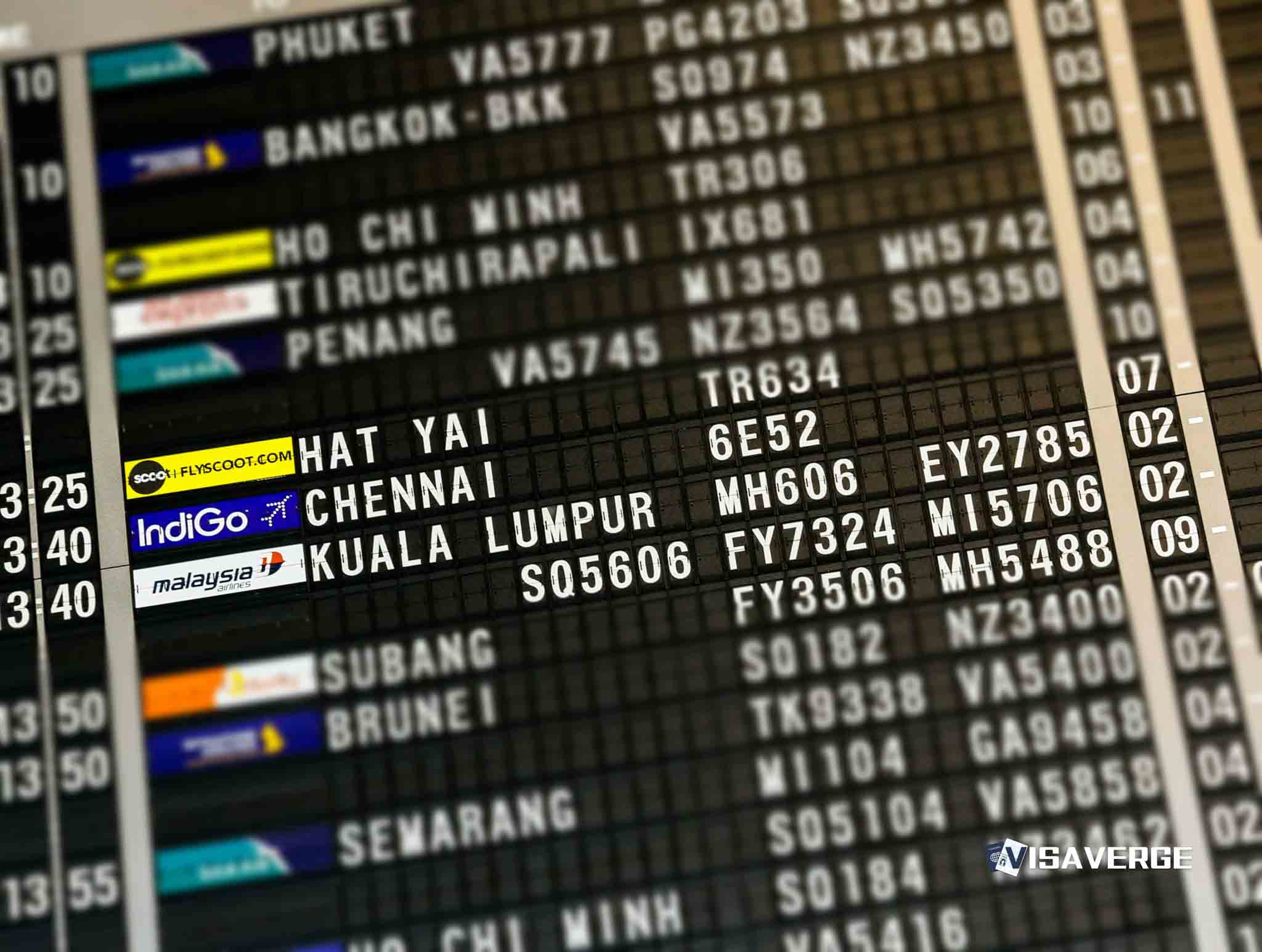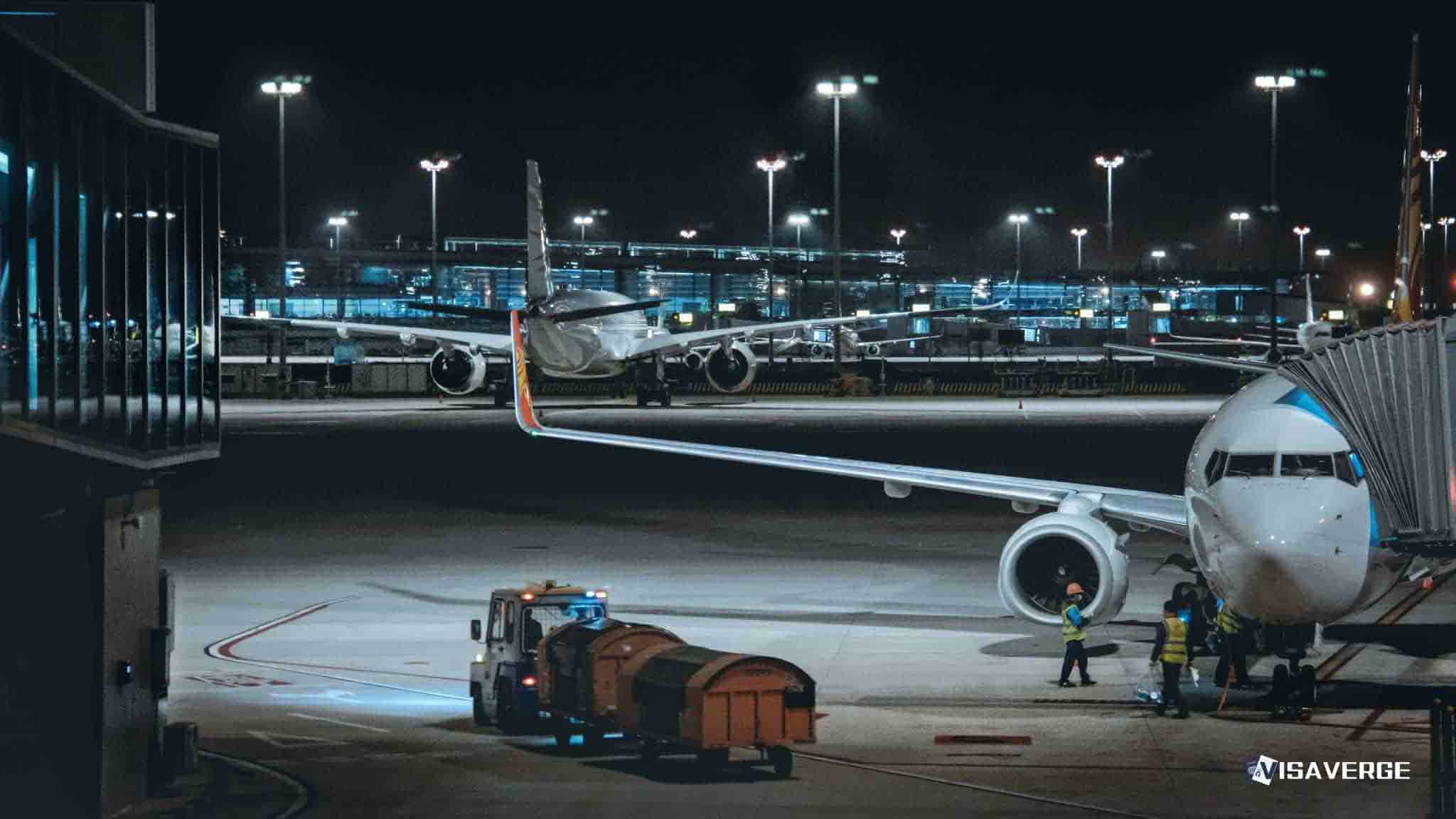Key Takeaways
• Refugee Resettlement Program requires valid refugee, asylee, Cuban/Haitian, trafficking victim, or SIV status with SC residency and SSN proof.
• Eligible refugees access housing, jobs, education, healthcare, mental health, and community support via state and local agencies in South Carolina.
• Programs like RAP and Matching Grant aid medical coverage and financial independence; Welcome Corps offers private sponsorship starting in 2023.
If you’re a refugee or asylum seeker considering South Carolina as your new home in 2025, it’s important to know what support is available and whether you qualify for these programs. South Carolina offers a range of services through the Refugee Resettlement Program, managed by the South Carolina Department of Social Services, as well as through local organizations and national partnerships. This guide will help you quickly figure out if you qualify, what you need to apply, what might disqualify you, and what to do if you’re not eligible right now.
Who Qualifies for Refugee Support in South Carolina?

The main program for refugees in South Carolina is the Refugee Resettlement Program (RRP), run by the South Carolina Department of Social Services (SCDSS). To qualify for help from this program, you must meet certain requirements. Here’s a clear breakdown:
Basic Eligibility Criteria
You qualify for the Refugee Resettlement Program if:
- You have been admitted to the United States 🇺🇸 as a refugee through the U.S. Refugee Admissions Program (USRAP).
- You have been granted asylum by U.S. immigration authorities.
- You are a Cuban or Haitian entrant.
- You are a victim of human trafficking with the proper documentation.
- You are a Special Immigrant Visa (SIV) holder from Afghanistan or Iraq.
You must also:
- Live in South Carolina.
- Have a Social Security Number (SSN) or proof that you have applied for one.
If you meet all these requirements, you can apply for support through the South Carolina Department of Social Services.
Who Does NOT Qualify?
You do not qualify for the Refugee Resettlement Program if:
- You entered the United States 🇺🇸 without going through the official refugee or asylum process.
- You are in the United States 🇺🇸 on a tourist, student, or work visa.
- You do not have the required documents proving your refugee, asylee, or special status.
- You are not living in South Carolina.
- You do not have a Social Security Number or proof that you have applied for one.
Example:
If you came to the United States 🇺🇸 on a student visa and later applied for asylum but have not yet been granted asylum status, you are not eligible for the Refugee Resettlement Program until your asylum is approved.
Detailed Requirements for Each Group
Let’s look at each group in more detail, so you can see where you fit.
1. Refugees (USRAP Admits)
- Definition: People who fled their home country due to war, violence, or persecution and were approved for resettlement by the U.S. government before arriving.
- Required Documents: Refugee travel documents, I-94 Arrival/Departure Record stamped “Refugee,” or other official paperwork.
- Example: A family from Syria who arrived in the United States 🇺🇸 after being approved by USRAP.
2. Asylees
- Definition: People already in the United States 🇺🇸 who applied for and were granted asylum because they faced danger in their home country.
- Required Documents: Approval notice from U.S. Citizenship and Immigration Services (USCIS) or an immigration judge.
- Example: An individual from Venezuela who applied for asylum after arriving in the United States 🇺🇸 and received approval.
3. Cuban/Haitian Entrants
- Definition: People from Cuba or Haiti who have special permission to enter and stay in the United States 🇺🇸.
- Required Documents: Proof of status as a Cuban/Haitian entrant, such as a parole document or other official paperwork.
4. Victims of Human Trafficking
- Definition: People who have been brought to the United States 🇺🇸 against their will or through force, fraud, or coercion.
- Required Documents: Certification letter from the Office of Refugee Resettlement (ORR).
5. Special Immigrant Visa (SIV) Holders
- Definition: People from Afghanistan or Iraq who worked with the U.S. government and received a special visa.
- Required Documents: SIV approval notice or visa.
If you belong to any of these groups and live in South Carolina, you likely qualify for the Refugee Resettlement Program.
What Services Are Available If You Qualify?
If you meet the eligibility requirements, you can get help with:
- Housing: Help finding and paying for a place to live.
- Employment: Job search support, training, and help with resumes and interviews.
- Education: English classes, school enrollment for children, and adult education.
- Healthcare: Access to Medicaid or the Refugee Assistance Program for medical coverage.
- Mental Health: Counseling and support for trauma or stress.
- Community Support: Help connecting with local groups, faith communities, and other refugees.
Key Providers in South Carolina:
- South Carolina Department of Social Services (SCDSS): Main agency for refugee support.
- Lutheran Services Carolinas (LSC): Offers the New Americans Program in Columbia, SC, with housing, job training, and mental health services.
- World Relief-Upstate: Based in Spartanburg, SC, helps with reception, placement, and ongoing support.
Special Programs and Partnerships
Refugee Assistance Program (RAP)
If you are a refugee and do not qualify for regular Medicaid, you may be eligible for the Refugee Assistance Program. This program provides medical coverage for up to 12 months after you arrive in the United States 🇺🇸.
To qualify for RAP, you must:
- Be admitted as a refugee or have another eligible status (asylee, SIV, etc.).
- Have a Social Security Number or proof of application.
- Live in South Carolina.
If you qualify, you can get medical care for yourself and your family while you settle in.
Matching Grant Program
This program is an alternative to public cash assistance. It helps refugees become financially independent within 120 to 180 days after arrival. You get help with job placement, housing, and basic needs, but you must agree to work with your case manager and actively look for a job.
Who qualifies?
Refugees, asylees, and other eligible groups who are willing to work and do not need long-term cash assistance.
Welcome Corps (Private Sponsorship)
Launched in 2023, the Welcome Corps allows private groups (like churches or community organizations) to sponsor refugees. By 2025, the U.S. Department of State hopes to resettle at least 10,000 refugees through this program.
Who qualifies?
Refugees approved for U.S. resettlement who have a private sponsor group ready to help them.
Disqualifying Factors
You will be disqualified from these programs if:
- You do not have the correct immigration status or documents.
- You move out of South Carolina.
- You do not cooperate with program requirements (for example, refusing to look for work if you are able).
- You commit fraud or provide false information on your application.
Example:
If you claim to be a refugee but cannot provide any official documents, you will not be approved for services.
Alternative Options If You Are Not Eligible
If you do not qualify for the Refugee Resettlement Program or related services, you still have some options:
- Legal Aid: Seek help from immigration lawyers or nonprofit legal groups to see if you can change your status or appeal a denial.
- Community Organizations: Some local churches, mosques, and charities offer help with food, clothing, and basic needs, even if you are not in the official refugee program.
- English Classes: Many libraries and community centers offer free or low-cost English classes for immigrants.
- Job Centers: State job centers may help you look for work, even if you are not a refugee.
Tip:
If you are waiting for your asylum case to be decided, keep all your documents safe and stay in contact with your legal representative.
How to Improve Your Chances of Qualifying
If you want to improve your chances of getting support through the Refugee Resettlement Program or related services in South Carolina, here are some steps you can take:
- Gather All Documents: Keep your refugee, asylee, or SIV paperwork in a safe place. Make copies in case you lose the originals.
- Apply for a Social Security Number: If you do not have one, apply as soon as you arrive in the United States 🇺🇸. You can find information and apply through the Social Security Administration.
- Stay in South Carolina: You must live in the state to get help from the South Carolina Department of Social Services.
- Work with a Resettlement Agency: Contact SCDSS, Lutheran Services Carolinas, or World Relief-Upstate as soon as you arrive. They can guide you through the process.
- Follow Program Rules: Attend all required meetings, classes, and job searches. Keep your case manager updated about your situation.
- Ask for Help: If you do not understand something, ask your case manager or a trusted community member for help.
What Happens After You Apply?
Once you apply for the Refugee Resettlement Program or related services:
- You will meet with a case manager who will review your documents and talk with you about your needs.
- You may be asked for more paperwork to prove your status or identity.
- You will get a plan for housing, job search, and other support.
- You must follow the plan and keep in touch with your case manager.
If you are approved, you will start getting services right away. If you are not approved, your case manager will explain why and may suggest other options.
Official Resources and Where to Get Help
- South Carolina Department of Social Services (SCDSS): Main office for refugee services. Visit their official website for more information and contact details.
- Office of Refugee Resettlement (ORR): National agency that funds and oversees refugee programs. Learn more at the ORR website.
- Lutheran Services Carolinas: Offers the New Americans Program in Columbia, SC. Find details at their website.
- World Relief-Upstate: Based in Spartanburg, SC. Visit their website for support options.
Practical Examples
- A Syrian family arrives in South Carolina as refugees: They contact SCDSS, show their refugee documents, and get help with housing, enrolling their children in school, and finding jobs.
- An Afghan interpreter with an SIV moves to Columbia, SC: He works with Lutheran Services Carolinas to find a place to live and starts English classes.
- A Cuban entrant in Spartanburg: She connects with World Relief-Upstate for job training and community support.
Why These Programs Matter
According to analysis by VisaVerge.com, refugees in South Carolina not only get help starting over but also bring important skills and energy to the local economy. They fill jobs, start businesses, and help make communities stronger and more diverse.
Looking Ahead: Changes and Growth
The United States 🇺🇸 is working to welcome more refugees in 2025 and beyond. Programs like the Welcome Corps are growing, giving more people a chance to start new lives with the help of private sponsors. South Carolina is expected to keep expanding its support for refugees and asylum seekers, making it a welcoming place for newcomers.
Key Takeaways
- You qualify for the Refugee Resettlement Program in South Carolina if you are a refugee, asylee, Cuban/Haitian entrant, victim of trafficking, or SIV holder, and you live in the state with proper documents.
- You must have a Social Security Number or proof you have applied for one.
- If you do not qualify, look for legal help, community support, and other resources while you work on your status.
- Stay organized, follow program rules, and ask for help when you need it.
For the most up-to-date information, visit the South Carolina Department of Social Services Refugee Resettlement Program.
If you’re starting your journey in South Carolina, know that help is available. Take the first step by reaching out to the South Carolina Department of Social Services or a local resettlement agency. With the right support, you can build a safe and successful future for yourself and your family.
Learn Today
Refugee Resettlement Program → State-run support program assisting refugees with housing, jobs, healthcare, and integration services in South Carolina.
Asylee → An individual granted asylum after arriving in the U.S. due to fear of persecution in their home country.
Special Immigrant Visa (SIV) → A visa for Afghans or Iraqis who worked with the U.S. government, allowing immigration protection and resettlement.
Refugee Assistance Program (RAP) → A medical coverage program providing up to 12 months of Medicaid to eligible refugees in South Carolina.
Social Security Number (SSN) → A unique federal number required for work and access to many government benefits, including refugee services.
This Article in a Nutshell
South Carolina’s Refugee Resettlement Program supports qualified refugees with housing, jobs, education, and healthcare. Specific legal statuses and residency are required to qualify. Services include medical assistance and employment support from local agencies. New private sponsorships expand refugee aid. Stay documented and work closely with resettlement partners for successful integration.
— By VisaVerge.com







